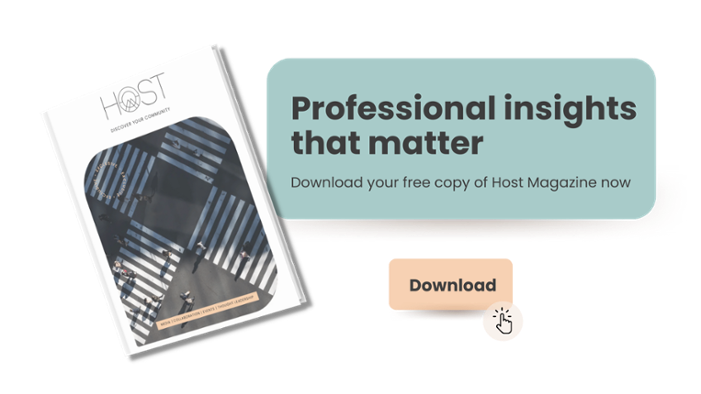
At Orbis, we’re always learning from the variety of different methods and standards within the industry that we encounter across the regions we work in. We want to share the best examples of policy, culture and practices that support employee well-being.
Today we’ll explore what it’s like to work in tech in the Nordics region, and how Sweden in particular is strides ahead in comparison to many countries regarding factors like work-life balance, annual leave, and healthcare.
We sat down with Managing Consultant Ryan Brown who manages our work in the Nordics region while based in the London office. He has first-hand insight into the comparison between these two worlds and sings the praises of the tech industry in Scandinavia.
Read on for the interview to discover how we can all take a leaf out of the Nordic playbook.
Communication and relationships.
In oversaturated markets, across various industries, culture can often arise where businesses and professionals are reluctant to open lines of communication. Dismissive personas are developed, and there are barriers on the path to getting in contact with the right person.
According to managing consultant Ryan Brown, specialising in the Nordics region, “In the Swedish market, the culture is typically very open about information,” meaning the likelihood of getting through a switchboard without questioning, and of getting through an entire pitch without being cut off, is much higher.
This has a beneficial knock-on effect on professional relationships, says Ryan “Even if their answer is still ‘I’m not interested,’ they’ll make it as polite as possible and keep the door open in case it’s relevant to them in the future.”
Parental leave.
In the UK, paternity leave is capped at two weeks, with limitations regarding how long you’ve worked for your employer, and different rules for adoption. Leave for antenatal appointments is unpaid. For agency workers, the latter is only available if you have been in your current position for 12 weeks.
In the US, paid leave for new fathers is not guaranteed at all. As this CBS news article asserts, America is “the only developed nation that does not have a federal law mandating paid leave for parents”.
There are hopes that 4 weeks of paid family and medical leave (FMLA) will be included in President Biden’s Build Back Better plan, but this won’t take effect until 2024. Some states have introduced their own legal mandates on employers.
FMLA paternity leave protects the right of new parents to return to work after taking a break but doesn’t offer financial support, creating a clear inequity problem. Workers only qualify for FMLA “when they’ve worked at least 1,250 hours in the 12 months preceding the leave, at a company that employs more than 50 people.” according to Fatherly.com.
The drawbacks of these limitations are too numerous for the scope of this article. Key ones include:
- A disproportionate burden of early childcare falls on women, which can hinder their progression into leadership and senior roles.
- Impacts on the mental health of the father (and the whole family) resulting from a lack of early bonding time.
Contrastingly, in Sweden, parents are entitled to 480 days, or about 16 months of leave between them, if there are two. This period is ‘shared’ for gender equality, with 90 days reserved for each parent. This is paid at 80% of the salary for the first 390 days and 180 SEK thereafter.
Until a child turns 8, parents have the option to take leave, with or without pay (which is applied for), and can also reduce their working hours by up to a quarter.
As a result of this, according to Ryan “The sheer quality of the relationships they can build within their family is better, which has a huge knock-on effect producing overall healthier mental well-being.”
Holiday.
The legal standard in Sweden is Five weeks of annual holiday, but the majority of companies offer six. In the public sector, this can be as high as seven or eight weeks, up to two months of the year.
Four of these weeks can be taken consecutively, and most employees take these in the summer for a long uninterrupted break. This means that many companies in the Nordic region effectively shut down over the summer weeks, operating on a skeleton staff.
The benefits of this can be compared with winter break company shutdowns in the UK when many employees find that rest and rejuvenation are much easier without knowing that things are going full steam ahead back at the office, and work may even be piling up for your return.
In Sweden, it is also uncommon to work more than 40 hours a week unless incentivised. The average work week is around 37 hours.
“They don't share the more western view that we have, which glorifies overworking and burnout,” says Ryan.
This is a result of understanding the full impact of burnout on a workforce, and on an economy. In the UK, losses connected to burnout could be equivalent to 80 million hours worked, or £700millions annually.
In Sweden, it seems clear that this is considered, and the benefit of having a healthier balance is prioritised, saving the economy vast amounts of money eventually.
Overall, factors like annual and parental leave, as well as the culture and relationships we build, are essential to work-life balance, individual well-being and fulfilment at work. Therefore, they support performance and productivity.
Employee needs are unique to everyone, but generous policies and open mindsets like those we have explored above create room for everyone to tailor their working lifestyle as they require.
Hopefully, more countries will progress in the same direction as Sweden in the near future, prioritising employee wellbeing first, and then watching better performance and revenue follow.



